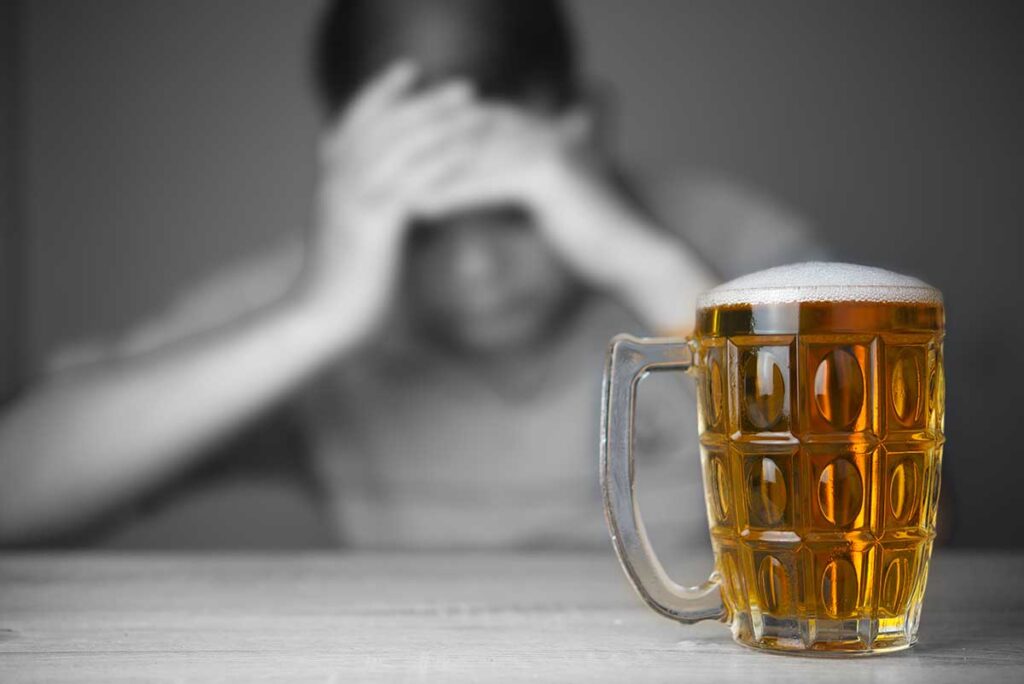
How Therapy Can Address an Addiction
Substance use disorders (SUDs) affect over 20 million Americans and can be complex to treat because of their multidimensional nature. There are the physical and neurobiological aspects, as well as the mental, emotional and psychological facets.
SUDs are labelled a chronic brain disease and can co-exist with mental health disorders. Addiction typically requires a combination of medical and clinical interventions in the treatment process, so that the addicted person can address the roots of their substance use and adopt healthier coping skills. (Learn how people are overcoming substance abuse and related mental health issues at FHE Health.)
The Role of Therapy in Recovery from Drug and Alcohol Issues

The good news is that SUDs are treatable: With the right help, people do recover; and therapy is often an important component of that healing process. In fact, therapy can play a very useful role in helping people manage and overcome drug and alcohol issues—no matter where they might fall on the spectrum of severity.
Exactly how therapy might address a substance problem will depend on its progression and severity. With alcohol use disorder, for example, someone whose drinking habit is relatively mild will need a different level of support and intervention than someone with advanced alcoholism. What follow are three common scenarios that illustrate how therapy might address an addiction, depending on how severe it is.
A New Habit of Chronic and/or Binge Drinking

This scenario became more common during the pandemic, as a growing number of people began to habitually drink more. That might mean 2-3 glasses of wine every day to relieve stress or a habit of binge drinking (which for women constitutes more than four drinks and for men more than five drinks in a two-hour period). In the first case, the person might be drinking nightly after work to deal with stress. In the second case, they might be throwing back the shots and getting intoxicated on the weekend as an escape from life issues.
In this scenario, the substance abuse is in the moderate range. If left unattended, it could escalate into full-blown addiction but is not there yet. The individual may notice that they are spending more of their free time drinking, that they can’t make it to work on Monday, or that they are engaging less in healthy activities like working out, going to church, and spending time in sober pursuits.
These observations may be enough on their own to cause the person to want to make a change. In this case, outpatient therapy can be a helpful way to develop insight about what is going on and why they are drinking. Typically, people drink because they are trying to self-medicate feelings of depression, anxiety, loneliness or stress. Therapy can provide clarity about what is happening.
Much like a trainer introducing a new exercise routine, the therapist can help the client develop healthy and constructive habits that support the client’s goals. The client may know they want to start a new routine but don’t know how to approach it. The therapist can show them how.
Addiction isn’t just about stopping the drinking or compulsive behaviors. That’s not dealing with the root problem, which is why a person is drinking so much. The therapist can help you identify these causes and recognize the real problem. They also can provide confidential accountability. If the client’s goal is to be a healthy, happy and high-functioning person, the therapist can help them navigate there using various tools.
Problematic Drinking That’s Unmanageable

Another scenario in which therapy is useful is where the person is spending all their free time drinking. They may be experiencing the health effects yet still can’t stop. In this case, the drinking is a bigger, less manageable problem, but the person is still functioning and getting by. (For instance, maybe they are not in a job where they get drug-tested, so are able to keep their problem under the radar.)
This scenario is when an extra level of support is needed. Usually, it’s not until there’s a consequence that people get help. Most people don’t wake up one day and say, “I’m an addict.” Recognizing the problem is step A. Step B is doing something about it.
More intensive individual therapy, such as through an intensive outpatient (IOP) or partial hospitalization program (PHP), can address this level of addiction. It may also entail seeing a psychiatrist for medication to address an underlying issue like anxiety or depression.
The difference with IOP/PHP is that in addition to weekly, individual psychotherapy sessions, you can also receive group therapy supports. Many people find these additional social supports to be helpful in their recovery. Individual therapy is great but has its limitations. It won’t help on a Friday night when you’re feeling lonely or when you need to get out and engage in healthy activity. Group therapy adds that next layer of support, feedback, accountability and community.
12-step groups may be another support available. Alcoholics Anonymous and Narcotics Anonymous are not for everyone but have helped countless people tap into a spiritual foundation for recovery that can support the work they’re doing in therapy.
Full-Blown or Advanced Alcoholism

In this scenario, the person’s drinking has not just taken over their life but has caused very serious consequences. (For some folks, this may occur two weeks into drinking or using, and for others it may be 20 years into drinking or using.) They may have gotten a DUI, left young children in the car in freezing temperatures or been kicked out of the house by a spouse.
Inpatient therapy is the most appropriate level of care for those who may be dealing with full-blown or advanced alcoholism or addiction and/or who’ve tried other solutions that haven’t worked. Inpatient therapy refers to the intensive group and individual therapies that patients receive as part of a residential treatment program, alongside medically supervised detox and other services to prevent physical issues and loss of life.
The detox level of care is for anyone coming off alcohol or another substance who may be at risk of seizures or other medical complications. The constant supervision and assistance that residential care provides, as well as the intensive group and individual therapies, are geared for those who are most vulnerable to relapse. The goal is to provide them with the maximum level of support and therapy, so they can achieve recovery.
There is help for substance abuse. Therapy is often a first line of treatment, and it’s easy to see why. Just the simple reminder that you are not alone and that someone is there to listen and offer support can mean a world of difference.
Dr. Beau A. Nelson is Chief Clinical Officer at the national behavioral health provider FHE Health.




